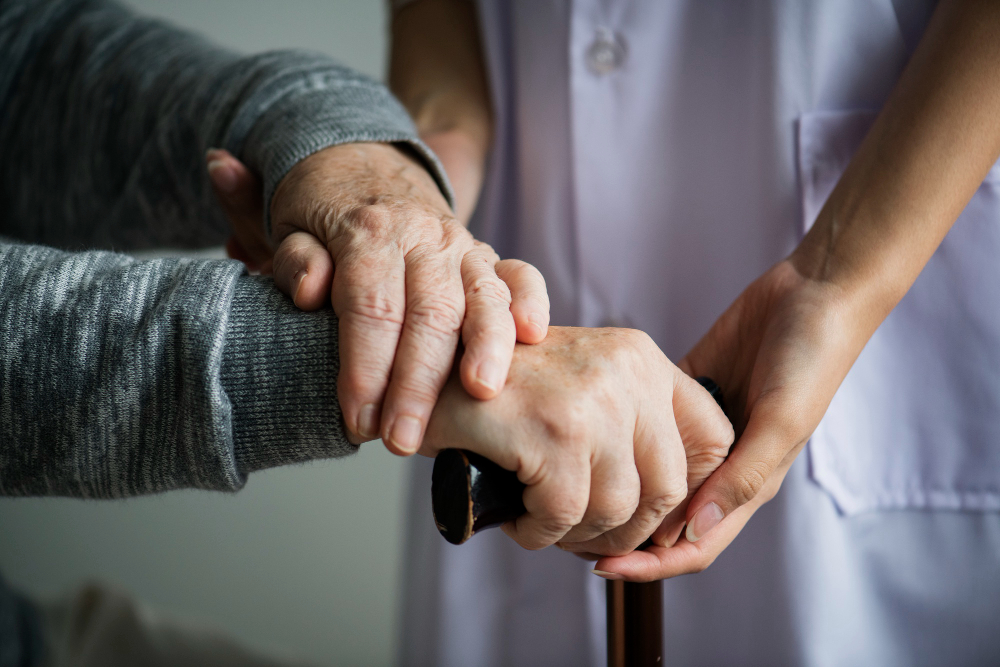- Professional caregivers provide specialized and humane care to seniors.
- Enlisting professional assistance is an investment in dignity, quality of life, and family.
- Planning for professional care should consider the senior’s financial situation and explore all payment options.
- Accepting the need for professional care is a gesture of love and responsibility towards our elderly population.
Illness and health crises are daunting at any age but can be particularly challenging for seniors, who often face not only complex medical issues but also emotional, financial, and social challenges. In these critical times, the support of professional caregivers is invaluable, offering a level of care, expertise, and empathy that can profoundly impact the health and well-being of the elderly. As caregivers, family members, and compassionate individuals, we are responsible for ensuring that our seniors receive the support they need with the dignity and respect they deserve.
The Vulnerability of Seniors in Health Crises
The frailty that often accompanies advanced age makes seniors particularly vulnerable during health crises. These situations can be sudden, require swift action, or be chronic and require ongoing, specialized care. In either case, professional assistance becomes a necessity. The question then becomes not whether to enlist such help, but how to ensure the professional care chosen meets the unique needs of our elderly loved ones.
Key Benefits of Professional Care for Seniors in Crisis
Professional caregivers bring a myriad of advantages that extend beyond basic medical assistance. Here, we’ll explore several paramount benefits that underscore these specialists’ critical support.
1. Emotional Support and Companionship
When facing a health crisis, seniors need more than just physical care—they need someone who understands their emotional needs and offers companionship. Professional caregivers excel at this, providing a shoulder to lean on and a hand to hold. Their ability to form meaningful connections with seniors can ease the emotional burden of illness, offering comfort during what may be a time of great distress.
For instance, a hospice nurse can provide invaluable support to patients and their families during the end-of-life journey, offering emotional solace and companionship to all involved. This type of care can be especially beneficial for seniors who may feel isolated or lonely due to physical limitations.
2. Expert Medical Care and Pain Management
The nature of many senior health crises demands specialized medical attention. Professionals are trained to offer this, navigating complex treatment regimens and ensuring that seniors receive the best care possible. Beyond this, they possess the knowledge and skills to manage pain effectively, which is critical in maintaining the quality of life and ensuring that seniors can find peace in their final moments if near end-of-life.
3. Help with Daily Living Activities and Personal Care
Maintaining independence and dignity is crucial for seniors, even during serious illness. Professional caregivers assist with the activities of daily living, such as bathing, dressing, and eating, ensuring that seniors can maintain a quality of life that aligns with their personal standards and sense of self-worth.
In addition, caregivers can assist with personal care tasks such as medication management and mobility support. This level of help allows seniors to remain in their own homes for as long as possible, reducing the need for a transition to a nursing home or assisted living facility.
4. Family Support and Guidance
Professional caregivers are not just advocates for their patients; they are support systems for the entire family. They educate, advise, and console family members, guiding them through the often confusing landscape of medical care. This not only helps manage the stress and anxiety associated with a loved one’s illness but also ensures that family members are equipped to provide the best support they can.
Choosing the Right Professional Assistance
Selecting the appropriate professional assistance is a complex decision that depends on various factors, including the senior’s health condition, location, and personal preferences. It involves thorough research, clear communication, and sometimes tough choices. Here are several considerations to keep in mind while navigating this process:
- Begin by understanding the senior’s specific needs, both in terms of medical care and personal comfort.
- Seek referrals from medical professionals, friends, and family.
- The relationship between a senior and their professional caregiver is deeply personal. Finding a service or individual with whom the senior feels comfortable is important.
- Consider the senior’s financial situation and plan accordingly.

An Investment in Dignity and Quality of Life
The decision to enlist professional assistance for a senior’s health crises is more than a course of action; it’s an investment. It’s an investment in dignity, ensuring that seniors are cared for with respect and compassion. It’s an investment in quality of life, providing the support necessary to maintain comfort and fulfillment, even in adversity. And ultimately, it’s an investment in family, offering solace and guidance to those who walk alongside their loved ones in their final journeys.
Conclusion: The Professional Touch
Professional caregivers can be the guiding light in the labyrinth of senior health issues. They offer a level of care that is not only specialized but also deeply humane. Recognizing and accepting the need for their services is a gesture of love and responsibility toward our elderly population. Our final act of caregiving is to ensure that the twilight years of our seniors, though fraught with challenges, are also filled with the warmth and care that come from a professional touch. It is a testament to our value on life, even as it nears its natural end.

